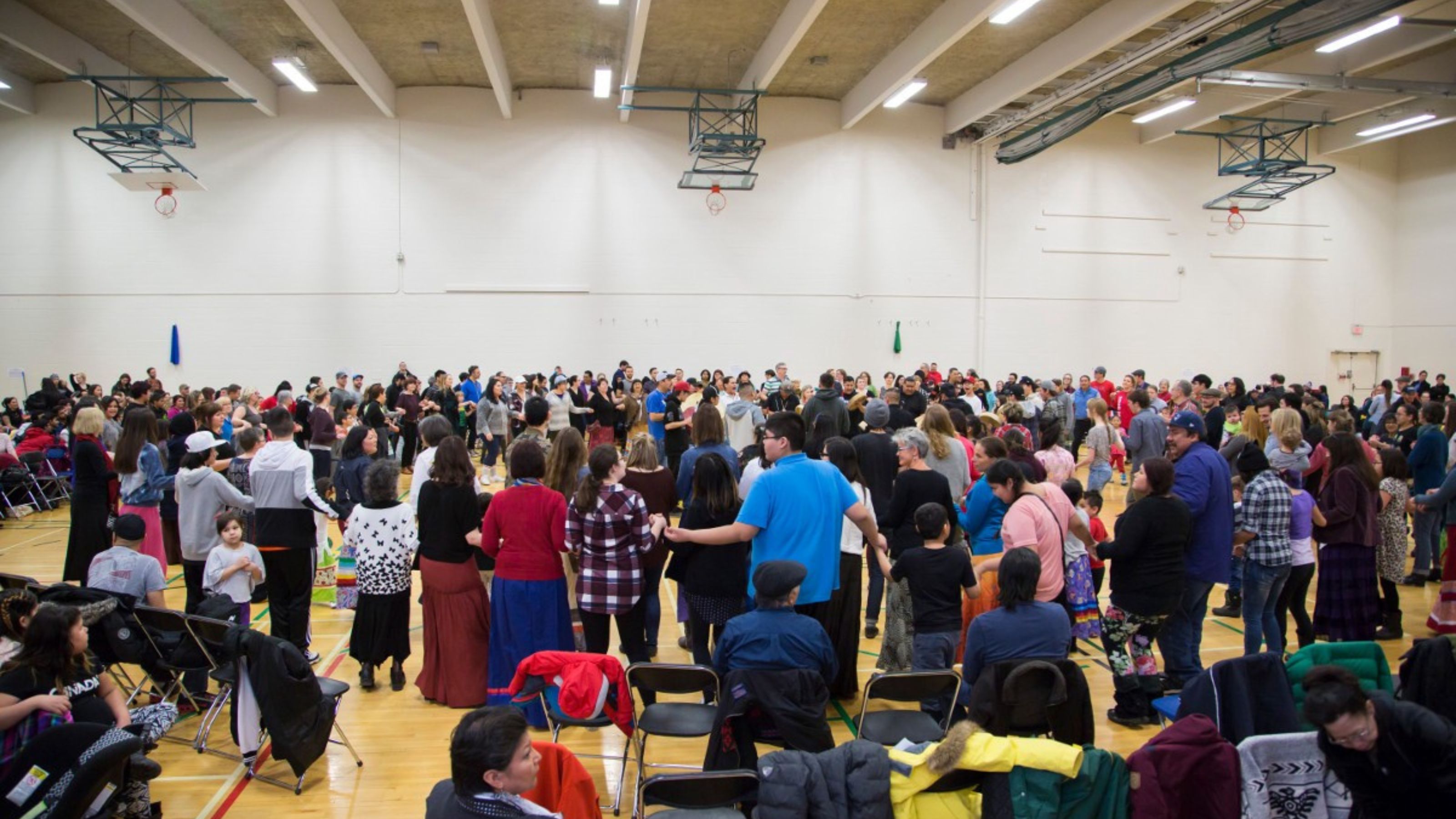The Round Dance ceremony brings us closer to our community and reminds us that we are all related.
This year the Round Dance ceremony honoured the U of A graduates who completed their degrees during the pandemic. As mentioned in the Round Dance ceremony, it is important to gather and honour the graduates because they inspire and encourage the young members of their community to follow their dreams.
It was my first time attending a Round Dance. It was a special experience for me because it gave me the opportunity to connect with the campus community and learn how we are each related in our unique ways. I was also able to understand more about the history and traditions of Indigenous people and how I can better connect with their teachings and establish inclusive relationships of learning. I found the Round Dance to be a highly inclusive and supportive environment where all members of the community are welcome to participate. In the circle, I danced and shared the songs with other U of A students, young children, members of the Edmonton community, and also those who came from outside of Edmonton to participate.
The ceremony started with an opening song and prayer. The songs continued one after the other, and the dancing was ongoing for hours; taking a break in between songs was also an option, but you could dance one song after the other if you were feeling really energetic. Singers and drummers came from both afar and locally, and they sat in the middle of the circle while everyone else joined hands and danced, surrounding the singers. The songs share the stories of the communities where the singers came from, and for this Round Dance, the songs were in Cree. There is also a closing song and prayer. At the end of the Round Dance, there were a variety of gifts shared with everyone as a sign of community.
At the Round Dance ceremony, I learned that the journey of healing is ongoing and that music works as medicine that nourishes our emotional, mental and physical states. When we dance, we connect with others, but we also get to know ourselves better by honouring the traditions and culture of our community.
Marc Jr Doire, a second-year criminology student and previously part of the Transition Year Program at First Peoples’ House, shares how the Round Dance connects him with his Indigenous culture and traditions:
What is special about the Round dance being held on campus?
The First Peoples’ House Annual Round Dance is one of the most important things that I can do to connect with my community on campus. I came to the U of A through the Transition Year Program (TYP), a U of A access program for First Nations, Métis, and Inuit students who may need additional support to enter a faculty undergraduate program. The TYP opened the doors to cultural access, academic support, and community building. I was asked by Shana Dion, the Assistant Dean for First Nation, Métis, and Inuit Students, to hold the leadership position of “oskapweyo” to help organize the Round Dance. I was invited to get involved in the Round Dance through this position because of my involvement with First Peoples’ House and the relationships I have built with the Elders.
Why is attending the Round Dance meaningful to you?
I was taught by my home nation that the sound of the drums represents our heartbeat, we are dancing to our heartbeat, and we are dancing to the Northern Lights. By attending the Round Dance, I am able to connect with my Aseniwuche Winewak culture. This ceremony is important because it reminds Canadians, but it also reminds ourselves that we are still here and that our culture matters.
The Round Dance is special for me because my Aseniwuche Winewak Nation lost parts of our culture, language, traditions, and ceremony due to settler colonialism in Jasper, AB, but by attending these ceremonies, I am able to experience and reconnect with my culture. Coming to university and knowing that we can have this ceremony here as an extension of our homes, is the most amazing thing.
Relationality is an important concept for me because it reminds us that we are all connected in some way, and that is the beauty of us being related. For us Indigenous peoples, the borders and federal group categories of us are arbitrary.
Regardless of which group you belong to, everyone is always welcome to come and experience our beautiful rich culture, that is the beauty of this ceremony.

